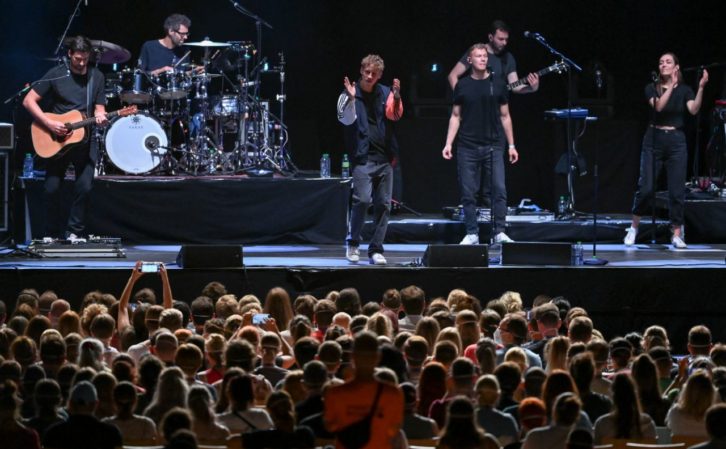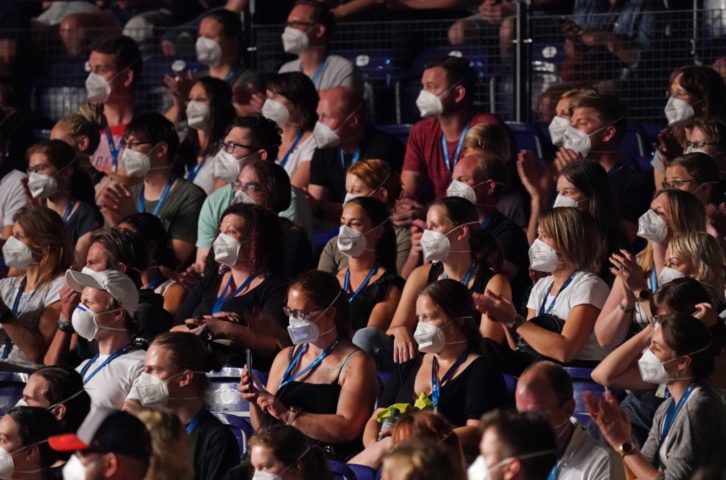The University of Halle recently held a live concert for research purposes, hoping to find methods of minimizing the spread of COVID-19. German star Tim Bendzko put on a live concert for approximately 1,500 study participants. Under the first scenario, which simulated the very beginning of a pandemic, the concert-goers were kept close together in the room with no social distancing. In the second, the researchers instituted hygiene measures and larger social distances between the volunteers. In the third, a distance of 1.5 meters (5 feet) between participants was strictly enforced.

Volunteers were required to test negative before the concert and had their temperatures checked at the gate. In addition to masks, they wore miniature “contact tracer” devices via chains around their necks, which “transmit a signal at five-second intervals,” continuously collecting data on each individual’s movements to monitor their social distancing tendencies.
Participants also disinfected their hands with a “fluorescent hand-sanitizer,” allows the researchers to use UV light and take inventory of the venue after the show, identifying virus transmission points through smears. In addition, researchers used fog machines that emit vapors and aerosols, which will help to further illuminate potential transmissions after RESTART-19 scientists utilize computer-generated models in advance of the concert.

Stefan Moritz, who led the study, said researchers had only about a third of the volunteers they had hoped for, partially because many Germans are still away on summer holidays and partially due to fears of participating even with the safety measures taken. But he said the experiment had gone well.
“We are satisfied with the numbers,” he told reporters. “We have good data quality.”
The results of the study are expected in four to six weeks, he said.







